Youth Internship Program- Week 6: Reflections on Grit
Week 6 of the Youth Internship Program is now behind us and yet again the week was filled with new learning, hard work, HOT temperatures☀️and lots of GRIT, which was also our theme of the week. Interns participated in lessons on food systems, pickling, professional communication, and smart shopping, while also being visited by special guests who lead sessions in their fields of expertise.
Kindall from Vertical Roots virtually joined our interns to discuss hydroponic lettuce growing and how innovation, technology and sustainability are incorporated in the hydroponic growing process. Greer from The Harbinger Cafe & Bakery rejoined our interns for another culinary lesson focused on meal planning and preparation where we made a delicious “Blackberry and Quinoa Salad.” Robert Perrineau, Principal of Military Magnet Academy also joined our interns to share insights from his career.
Amidst new learning, building the Urban Farm and visits from guests, our interns also spent week 6 reflecting on grit. Read on for intern of the week Harper’s reflection on the theme along with excerpts and additional insights from her fellow interns.
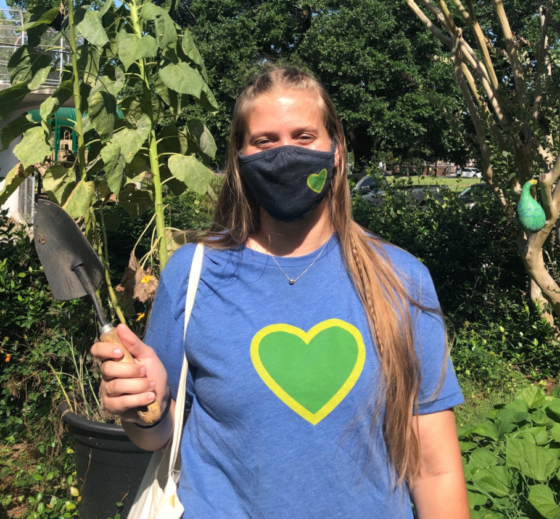
BIO
Harper is a rising senior at Charleston County School of The Arts for the Vocal Department. She has completed over 300 hours of community service through Girl Scouts in the last 11 years, which created her love for helping others. In her free time she enjoys singing and spoiling her dog. She is working with The Green Heart Project this summer to learn more about farming and sustainability and to continue her commitment to community service.
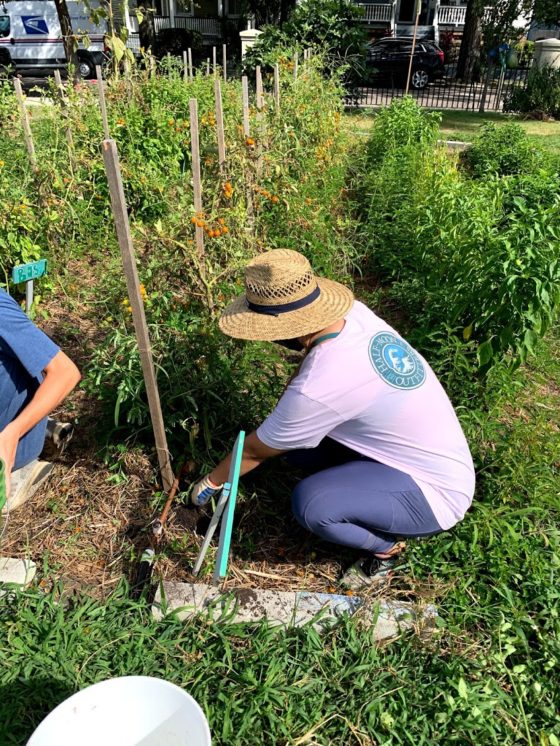
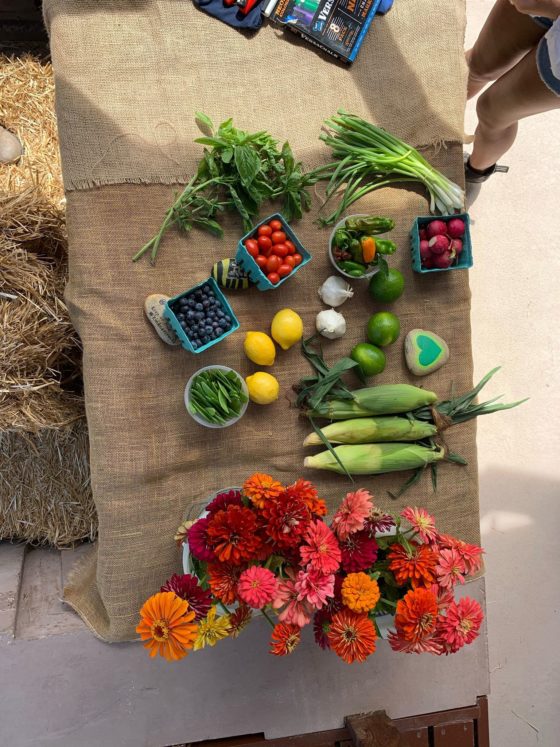
Reflecting on grit
During one of our breaks earlier this week, we were talking about water propagating plant cuttings. Water propagation is when you take a cutting from a plant and grow it in water rather than soil. Rachel was explaining to us that when plants are in water they start to die and in their last attempt to survive they sprout new roots. These new roots are what cause the plant
to thrive.
This week we had a talk with Dr. Perrineau, the principal at Military Magnet Academy, he told us that he thought grit was innate. He said that when we are faced with an obstacle, we have to decide whether to give up or to fight the obstacle. This story made me think of the water propagated plant. When faced with the risk of survival, the plant persevered and sprouted new roots instead of simply dying.
Granted I’m not sure where it came from, but at the start of this week when I thought of grit, I imagined an old car mechanic throwing a greasy rag over his shoulder and yelling with a New York accent, “Put more elbow grease into it!” After this week’s conversations, I now know grit as a term meaning to constantly work towards a bigger goal and persevering through
obstacles.
The other seven interns and I show grit every week by working on building the new farm. We are out there pounding nails and carrying large wood planks during Charleston’s hot and humid summer days all while in our masks. Not once will you ever hear anyone complain, because we are all working towards the same goal; to see the farm done. In years to come we
will all look back on this project and we will not remember those hot days we will instead remember the feeling of accomplishment from knowing that our grit was used to provide a little bit of good in our community. -Harper Reed
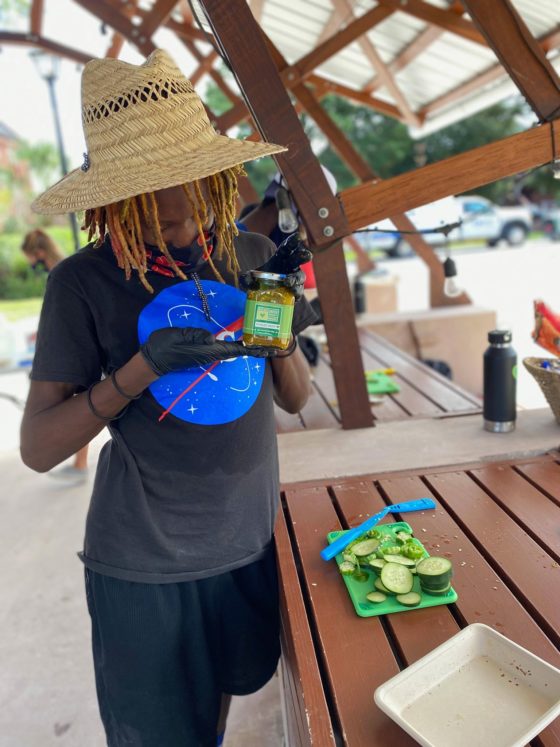
ADDITIONAL CREW MEMBER REFLECTIONS & EXCERPTS
On grit:
I believe if you practice grit and never give up and try to make a difference and improve your community you could do something big and help many people. A time I had to use grit was when I was at the farm stand on Thursday because everyone was drained and exhausted but we had to push through that and get our work done. Grit is very important no matter what job you do. Grit is important because it shows that you are willing to push through whatever setback you might have. -John Paul G
After pondering grit throughout the week, I’ve realised that grit is not only working through hardships, but also working solely for the benefit of others, even when there is nothing for you to gain. The people at homeless shelters and soup kitchens show tremendous grit in their lives by giving their time and effort to those who are less fortunate than they are. Grit is also a valuable tool to use in one’s own life, for meeting deadlines, excelling at work, or improving yourself. In my life I’ve used grit and perseverance to study for approaching exams, as well as to share that knowledge with my classmates. Although I feel like my crew and I had already been working with grit since the beginning, this week’s insight into the topic has expanded my view of how grit can be used to help one’s self or their community. -Will B
When grit shows itself through people it makes me think of a weathered rock, the ocean being grit and the rock is the problem or injustice. When I see a visual of grit I see a person with a flame at the problem’s back side. I am practicing grit and making a personal goal to be an advocate for the community and keeping faith that I can have an impact in my little bubble at any time. -Jayla W
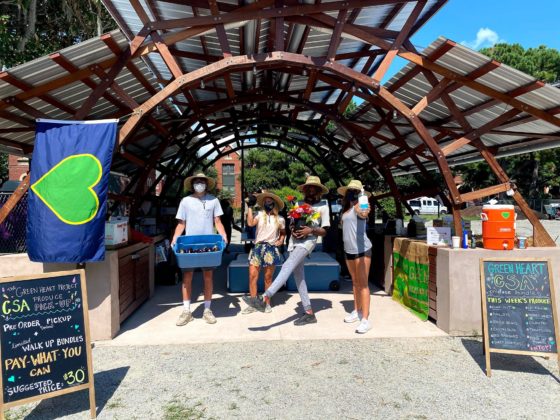
On environmental racism & gentrification:
It wasn’t until very recently that I discovered what money can buy a person. I’m not referring to the tangible luxuries like the subdivisions with neighborhood pools or the luxury cars that dominate Mount Pleasant’s streets; I’m talking about the peace that comes with the dollars. There are no train routes in Mount Pleasant or Downtown or even West Ashley. All of the trains mainly run through North Charleston. I remember being woken up out of my sleep by trains going by in the middle of the night, and I always brushed it off because it was my normal. Why is undisturbed sleep reserved for those who can afford to live in more affluent areas? The interesting thing about gentrification is that it’s gradual, and it allows you to see the striking disparities in how different groups of people are treated. – sage B
Posted by Amanda Howell
On July 28, 2020
In Announcements, Education, Urban Farm Updates
Comments on this post